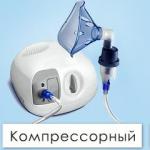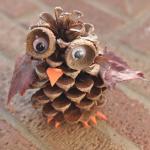Severe sweating of the head in a child: possible causes and methods of eliminating the disease. Why does a child's head sweat while sleeping?
Many parents worry and ask the pediatrician why their child’s head is sweating. But there’s no need to be nervous; it’s better to try to figure it out in order to rule out everyday causes of sweating. In this article we will describe the reasons why a child’s head sweats, and we will tell you what to do if the child is sweating.
What is sweating
Sweating is a normal physiological process designed by nature. The work of the sweat glands is regulated by the nervous system, as well as heartbeat, breathing, body temperature and other processes.
Essentially, children sweat just like adults, but more frequently and intensely. The baby's sweat glands begin to work three days after birth, but they are still underdeveloped. The glands are fully functioning by the age of six, and the child’s body reacts more sharply to any irritants.
Possible reasons
If a child’s head sweats a lot, then such a reaction of the body can be provoked by completely different reasons. Among them there are purely physiological ones, but there are also those that require immediate consultation with a pediatrician.
If the baby is healthy, then his head may sweat a lot for the following reasons:
- Parents wrap the child up - you should dress him for a walk the same way adults dress, just add an additional layer of cotton clothing. If the baby is very active, then dress him very lightly, since such children quickly warm up and sweat when moving.
- A child's head sweats when he has a cold - a protective reaction of the body, since with the release of sweat the toxins that caused the disease are released, and the rise in temperature stops. After a few days, other symptoms of the disease will appear. You just need to wash your baby’s hands more often, cool his feet and forehead, and, if the temperature does not rise above 38 degrees, perform the usual hygiene procedures.
- A child sweats if he experiences strong emotions, and it doesn’t matter whether they are positive or negative. When a baby experiences fright, resentment, fear, pain, or vice versa, euphoria, delight, then his head, neck and palms sweat.
- Lack of sleep and anxiety. In this case, it is necessary to regulate his daily routine and protect him from overwork.
- The child's head sweats a lot after taking it medicines. Sweating in this case is by-effect active substance of the drug.
If the child is healthy, then he sweats evenly (chest, armpits, neck, head, back), and the sweat does not have a pungent odor. If the mother notices increased sweating in the baby, and the sweat is thick, sticky or liquid, like water, with an unpleasant pungent odor, then you need to urgently consult a pediatrician.
If a child sweats heavily and often after using the toilet or while eating, the skin itches after sweating, the top of the head constantly gets wet, he sleeps poorly and constantly cries, then rickets may manifest itself. In this case, the doctor must prescribe the necessary treatment.
If your baby develops very thin or thick sticky sweat in different parts of the head, with a pungent odor, then you should contact a psychologist or neurologist, as such symptoms may indicate a malfunction nervous system.
Increased sweating is also observed in some hereditary diseases. For example, with phenylketonuria the smell of sweat resembles that of a mouse, and with cystic fibrosis the sweat changes chemical composition. Test results will show increased levels of chlorine and sodium. Increased sweating is caused by lymphatic diathesis. This disease most often occurs in children aged three to seven years.
If a child’s head is sweating, and at the same time he is restless and sleeps poorly, then this may indicate heart failure, hypothyroidism and other diseases.
What to do if your child sweats a lot during sleep
Parents often ask why the child sweats when he sleeps, what does excessive sweating indicate.
If a child's head sweats in his sleep, then most likely he is just hot. The temperature in the room where the baby sleeps should be no higher than twenty degrees, with a humidity level of about 60%. Be sure to ventilate your child's room before going to bed.
The baby may sweat in his sleep if the bedding or pajamas are chosen incorrectly. For warm summer nights, light pajamas with short sleeve, and in the fall and winter, warm knitted or flannel pajamas will come in handy.
A child's head sweats in his sleep if he moves too actively in the evening or is overtired. Experts advise parents to turn off the TV two hours before bedtime, play a quiet game with their baby, and read fairy tales to him. This will help your child calm down before bed.
If the baby has an easily excitable nervous system, he has difficulty falling asleep and often wakes up at night, sweats profusely, then it is very useful to give him soothing herbal tea or add herbal infusions to the bath when bathing. When using herbal remedies, you should definitely consult your pediatrician.
During the active phase of growth, children sweat more profusely, and a large child usually sweats more than his peers. If excessive sweating is observed in a child of 12-13 years old, this means that puberty has begun.
Sweating is considered a completely natural physiological process, which was provided for by wise nature. Newborns sweat more often and more intensely than adults. And since the sweat glands in infants are not yet sufficiently developed, malfunctions often occur. However, sometimes sweat on the forehead may indicate the development of such a serious illness as.
Today we will tell you why a child’s head sweats and how to correct the situation. In most cases, sweat appears not only on the forehead, but also on other parts of the body. Don’t panic right away, because this process is completely normal and is not a symptom of the development of any pathological condition.
Scientists have found that sweat glands begin to work from the third day of life. Although, of course, it is still difficult to talk about their normal functioning. A child may sweat not only during sleep, but also during the day, while playing or resting. Only by the age of six can we expect normal functioning of the sweat glands.
Why does a baby's head sweat?
So, moderate sweating is good and correct. If you are concerned that your child is constantly sweating, regardless of whether he was just lying down or actively moving, you need to seek advice from a specialist.
The pediatrician will be able to detect the initial symptoms of the disease and take the necessary measures. There are several reasons for a wet head, which signal possible pathologies:
Vitamin D deficiency;
Heart diseases;
Failure in the functioning of the thyroid gland;
Colds (other symptoms are added - runny nose, fever, cough);
Reaction to taking medication;
Hereditary disease:
Phenylketonuria (sweat has a “mouse” odor),
Cystic fibrosis (increased amount of chlorine and sodium in sweat),
Lymphatic diathesis.
Too thin or, on the contrary, thick and sticky sweat all over the head, which also has a pungent odor, may indicate a malfunction in the functioning of the nervous system. If such symptoms appear, you should immediately contact a pediatrician or neurologist.
If the baby is healthy, then the explanation for the increased sweating may be the baby’s excessive activity, especially if not only the head is wet, but also the rest of the body. In addition, the forehead becomes moist as a result of fatigue, high temperature or high humidity in the room. Mothers who love to wrap their children in warm clothes should not be surprised by the perspiration.
Why does a baby's head sweat during feeding?
Many mothers are worried when they find beads of sweat on their baby’s forehead after feeding. Surprisingly breast-feeding- hard physical labor for any baby. This process can be compared to digging up a garden for adults. The baby sweats especially often if the mother has little milk or the lactation process is coming to an end. In addition, when breastfeeding beads of sweat on the head may appear because:
The child has recently suffered from any illness (including a cold); ?
At this moment, the baby is tightly wrapped, that is, a warmly dressed toddler will sweat much more intensely; ?
Mom holds the baby in her arms, additionally warming him up with the warmth of her own body.
Thus, breastfeeding is a kind of physical activity for the baby. Experts advise mothers not to attach much importance to a slight increase in temperature and perspiration on the child’s forehead at this moment.
Why does a child's head sweat in his sleep?
The question of why a child’s head sweats in his sleep worries many fathers and mothers. Why is it necessary to dwell on this problem in more detail? Excessive sweating may be a natural feature of a baby or may indicate a disease. By the way, the reasons for excessive sweating largely depend on the age of the children. Let's look at these factors in more detail.
7-8 months
At this age, a sweating head in a dream sometimes indicates the onset of rickets, the additional symptoms of which we will discuss below. Excessive sweating often occurs due to simple overwork. The child played and moved a lot, so it is not surprising that whims and tension appear, as a result of which the temples and the back of the head sweat.
12 months
One-year-olds often sweat because down pillows and blankets are too hot. Imperfect organism small child cannot yet withstand such a thermal “attack”. In addition, things with fluff can cause allergies in infants, one of the signs of which is sweating of the head.
Sometimes sweat on the forehead is just one of the signs of such a serious illness as diabetes. In addition to a wet head, dry skin on the lower half of the body is added. The child may also be genetically predisposed to sweating. In this case, perspiration on the forehead will be observed not only at night.
Wet head at 2 years old
To the listed reasons are added too warm clothes, stale air in the room or high humidity in the room. There is no need to worry if your child is sweating after an illness that was accompanied by a high fever.
At this age, the child's body is able to prevent dangerous overheating by producing and eliminating large amounts of fluid. When the baby gets better, sweating will return to normal.
Sweating head at 3 years old
Pajamas from synthetic materials can cause perspiration in the baby during sleep. The baby is uncomfortable, he tosses and turns, and sweats. In addition, an allergic reaction to unnatural materials is often added to this. Babies at this age may also sweat due to lymphatic diathesis. This condition usually disappears when all children's organs mature. However, doctors have several tips that will help reduce sweating of the head with this disease:
Bathe your child daily (you can add sea salt to the bath once a week); ?
Limit your consumption of sweet foods; ?
Replace liquid with juicy fruits and vegetables; ?
Give your baby licorice infusion regularly.
Sweat on forehead at 4 years old
At this age stage, excessive sweating is sometimes caused by conditions such as:
High body weight in a child; ?
Problems in the vascular system; ?
Long-term use of certain medications; ?
Tuberculosis (rare).
Does your child's head sweat while sleeping? At this age physiological reasons psychological ones are also added: violent emotions, nightmares. The baby may sweat not only the head, but also the neck and palms.
Sweating of the head as a sign of rickets
Rickets is considered one of the most unpleasant causes of excessive sweating. This disease in young children can lead to unpleasant consequences if left untreated. In addition to a wet head during sleep, rickets has other signs:
That part of the scalp, on which the baby often lies in his sleep, looks somewhat worn out;
The child's skull becomes elongated, and the temporal bones begin to deform;
The fontanel becomes soft; ?
The child is inactive, lethargic, because his vitality decreases and his muscles relax too much; ?
The abdomen begins to swell; ?
The limbs change position - they bend, turn out at different angles; ?
Children's emotions change - babies constantly cry in their sleep, are capricious during the day, are frightened by familiar objects and become too anxious.

To clarify the diagnosis, it is necessary to conduct an examination, which requires a venous blood sample. If concerns are confirmed, the doctor will prescribe appropriate treatment. However, it is much easier to prevent this disease with a course of vitamin therapy.
Vitamins of group D will help prevent the occurrence of deformation of systems and organs, and will also relieve a small child from excessive sweating of the head and limbs. However, taking vitamin complexes must be done under the supervision of a doctor - the baby’s health is at stake.
What to do if your child’s head is sweating?
If medical examination If you have discovered any disease that causes excessive sweating of the head, you do not need to deal exclusively with this symptom. The most important thing is to try to rid the baby of the provoking factor - the disease.
Is the baby healthy? Then you need to carry out preventive actions and follow the recommendations of specialists. If your child's head is sweating, you should:
Maintain optimal temperature (about 20 degrees) and air humidity (about 50-60 percent) in the children's room; ?
Buy things for children only from natural materials; ?
Dress your baby according to the weather, without wrapping him in a lot of clothes; ?
Do not overheat the little man in hot weather (bathe him more often at home, and drink cool water outside).
Thus, increased sweating at healthy child easy enough to fix. You just need to adhere to a certain regime and establish an optimal microclimate in the room. Most often, in older children, this problem resolves on its own.
If, in addition to profuse sweating, the child exhibits other alarming symptoms, it is imperative to consult a doctor. The earlier you can identify the disease and begin therapy, the less likely it is that various complications will occur.



Don't worry if your 7 month old baby sweats a lot. In most cases, sweating a lot is due to the individuality of the autonomic nervous system.
The process of sweating is aimed, first of all, at cooling the body and is regulated by the human autonomic nervous system. That is, a person sweats whether he wants to or not. Aware of the peculiarities of this process, many parents may worry if the baby sweats in conditions where a decrease in temperature is not required.
After all, everyone knows that increased sweating may indicate disturbances in the functioning of the body. Concern in this case can be justified only if, in addition to the temperature in the room where the child is located, and it should not exceed 20 degrees, other factors that contribute to increased sweating are taken into account. Such factors also include air humidity other than the range of 40 - 70%, synthetic clothing and bedding, which cause a 7-month-old child to sweat a lot.
In some cases, severe sweating can be observed even if all of the above conditions are met. Therefore, one should not discount the peculiarities of the child’s autonomic nervous system - its work can be as individual as other body processes. Increased sweating disappears over time in most cases, but can persist until adolescence. As a rule, the baby sweats a lot at night. In some children, there is an increase in sweating of the feet, in others of the head. When introducing complementary foods, sweating may also be different from normal.
It is worth taking seriously the excessive sweating of a child in cases where, in addition to this, he also exhibits other signs of pathogenic processes. Along with the fact that a 7-month-old child is sweating, the baby’s lethargy, runny nose, diarrhea, vomiting, fever or cough can signal an illness. In such cases, you should call a pediatrician at home. If any direct or indirect signs Rickets, which sometimes includes excessive sweating, requires urine and blood tests.
Excessive sweating itself, if it is not associated with illness, poses virtually no threat to the child’s health. The only thing you should pay attention to is that the baby’s wet clothes can lead to hypothermia, especially if there are drafts in the room. You should change your baby's clothes in a timely manner to avoid the occurrence of a rash that irritates the baby.
If we consider children from 1 to 12 months, then common causes may be:
- overheat;
- increased activity, for example, while sucking on the breast or pacifier;
- lack of vitamin D.
Also, children of all ages sweat for the following reasons;
- problems with the thyroid gland;
- cardiac disorders;
- ARVI;
- reaction to the medicine.
Very often, problems with sweating occur in children under 4 years of age. And already at the age of 5 this process begins to return to normal.
May suffer from excessive sweating junior schoolchildren and teenagers. In this case, first of all, you should pay attention to the hereditary factor, clothing, and only then, if necessary, contact specialists.
A child's head sweats in his sleep - reasons
Below we will look possible reasons of this phenomenon.
| Cause | Characteristic |
| When feeding | Very often, mothers notice that during feeding the baby begins to sweat. This is a definite cause for concern for them. In fact, sweat is often produced because the baby is putting a lot of effort into getting milk. In this case, increased sweating is a variant of the norm. |
| Rickets | A child may sweat during sleep and wipe the hair on the back of his head due to a lack of vitamin D. This disease is called rickets and manifests itself in the form of problems with bone tissue. Only a doctor can diagnose rickets, which is why at the slightest suspicion you should go to the hospital. The doctor will definitely prescribe vitamin D in the required dosage. |
| Endocrine diseases | At endocrine diseases there is a change in metabolism. This is what leads to increased sweating. At the same time it is noted only in the upper body, then the lower limbs experience dryness. |
| Heart problems | Increased sweating may indicate the presence of heart disease. In this case, the following signs should be present:
In this case, you should contact a specialist to make an accurate diagnosis and prescribe a suitable course of treatment. |
| During infectious diseases | Children often become infected with various infectious diseases. They manifest themselves in the form of elevated body temperature and related symptoms. Naturally, during this period the child’s body experiences serious stress and increased sweating is often noted. During sleep after illness, this problem may persist for some time, after which everything returns to normal. |
| Disturbed temperature regime | Some parents are accustomed to dressing their children quite warmly. Often this is simply inappropriate. This is why a child may sweat, both during sleep and while awake. In order to avoid this problem, you need to take off your hat in a warm room and wear mainly clothes made from natural fabrics. The room temperature must be maintained between 18 and 22 degrees. This will help your child feel comfortable and avoid sweating during sleep. This applies not only to infants, but also to children who are 2 years old and older. |
How to deal with sweating?
Often, excessive sweating is a physiological feature that is inherited. That is why the following simple steps will help to cope with this problem:
- maintaining the house temperature within 18-22 degrees;
- maintaining humidity at 60%;
- You need to dress your child in things made from natural fabrics that will suit the weather;
- Do not wear a hat unless necessary.
If the recommendations listed do not help, then you cannot do without a visit to the pediatrician. He will definitely examine the child and prescribe all the necessary examinations. This will help identify the cause of sweating and begin appropriate treatment.
Doctor Komarovsky's opinion
Dr. Komarovsky also did not ignore this problem. He gives his recommendations that help when a child’s head sweats during sleep:
- before going to bed, the child should not be overexcited, which is why it is necessary to minimize strong emotions in the evening;
- baby after active games recommends bathing in warm water with the addition of medicinal herbs;
- Give your child more clean water during the day, replacing soda, juices and fruit drinks with it.
Experience of doctors and mothers
Most often, parents of children under one year old experience increased sweating. Before the mother has time to leave the hospital, she notices that the baby’s head becomes wet during sleep. According to most parents, this problem can be solved simply by normalizing the temperature.
Mothers themselves admit that they are afraid of the baby catching a cold and dress him very warmly.
It also affects sweating. Some parents think that this problem should go away quickly enough and therefore begin to worry when it persists in children of 7-8 months. From the experience of mothers, it is clear that even at 3 years of age, sweating does not always improve.
Pediatric doctors have to deal with this problem almost every day. They say that the main thing is not to overheat the child. Also, from autumn to the end of spring, you need to give your child vitamin D. Often these measures are enough to prevent excessive sweating. Sometimes all the child requires treatment and supervision by specialists.
Often parents of infants note certain characteristics in their children. The room is not too hot, but the child sweats a lot, the hair is wet, and moisture has accumulated in the folds of the skin. Similar phenomena are characteristic of both sleep and wakefulness. Why is this happening? Why does my baby sweat a lot?
An infant may sweat even in a cool room that is ideal for thermoregulation.Why does the child sweat?
In most cases, which occur quite often, the causes of increased sweating are absolutely normal and harmless. The sweat glands are not yet sufficiently formed; their full work will begin closer to 5-6 years, maximum 7. Interruptions in their functioning are a frequent and widespread phenomenon. Let us mention that the process of sweating is absolutely natural for any person.
The weak body of a newborn baby is unable to instantly adapt to temperature changes, even if these changes are very insignificant. Natural and imperceptible temperature changes from the point of view of an adult can cause freezing in a baby or provoke increased sweating.
Let us list the circumstances that contribute to the fact that infant sweats:
- the room temperature is above 28˚C;
- synthetic or breathable materials for children's clothing;
- physical activity;
- taking medications that have the side effect of increased sweating.
Having ruled out all these reasons, but having a sweating baby as a result, you need to look for the root of the problem in something else. In this case, it is recommended to visit a doctor for consultation.
Result of overheating
The temperature in the room, which is normal according to adults, may not be quite comfortable for the baby (more details in the article:). You can protect your child from overheating by following these rules:
- Avoid wrapping yourself from the very beginning early age. The same condition is mandatory for older children.
- Sweat glands begin to work in newborns from 3 weeks of age. Dress your children the same way you dress yourself when indoors. For the street you will need another additional layer of outerwear.
- The air in the room should be moderately warm - 19-20˚C.
- Maintain a comfortable humidity level of 50-60%.
- Avoid long walks if it is too hot outside. If possible, stay in the shade while walking.
Cold symptom
When you have a cold, it is likely that your body temperature will rise; this happens quite often. It is important in this case not to confuse the symptom with the manifestation of other, more serious diseases. A doctor will help you avoid mistakes.
It is necessary to pay him a visit if, in addition to increased sweating, the child has the following symptoms:
- cough;
- runny nose;
- hot palms and feet;
- chills;
- redness of the eyes.
With these symptoms it is quite the right decision The parents will offer the baby plenty of drink. This, in turn, causes the baby to sweat more.
 Sometimes sweating can indicate colds, which is accompanied elevated temperature body
Sometimes sweating can indicate colds, which is accompanied elevated temperature body Heredity
If external causes quickly disappear, you can think about internal ones: the baby may have a hereditary disease, hyperhidrosis, which is characterized by intense work of the sweat glands. It is especially acute during emotional stress, physical exertion, and increased body temperature.
Hyperhidrosis can be of several types:
- general or generalized – the whole body sweats evenly;
- local or localized, having its own varieties: palmar-plantar; inguinal-perineal; axillary; face and head sweat a lot.
The two most common forms of hyperhidrosis are palmoplantar (seen in 60% of patients) and axillary (approximately 30% of cases). The cause of primary hyperhidrosis is extremely difficult to establish, since the disease appears on its own and not as a result of another disease.
Secondary hyperhidrosis can occur due to:
- diabetes mellitus;
- mental disorders;
- obesity;
- cancer diseases;
- endocrine diseases;
- infections, etc.
There is no need to panic. The primary form of the disease is most common in newborns. If the tests do not show any abnormalities, you can simply wait a little until this physiological feature goes away on its own.
Development of rickets
When a baby's head sweats frequently and profusely, this may be a symptom of developing rickets. With this disease, the skeletal system is not formed correctly, which occurs as a result of impaired metabolism and lack of vitamin D.
To be diagnosed with rickets, the child must have the following symptoms:
- shuddering during sleep, restless sleep;
- fear of sharp sounds, irritability;
- sour smell urine;
- Upon examination, the doctor determines some softening of the bones of the skull.
It is especially noticeable that the child sweats intensely when sleeping or during feeding. Sweat causes skin irritation and has a sharp, sour odor. The baby experiences discomfort and severe itching, which is why it begins to itch and rub its head on the pillow. As a result of this friction, small bald patches form on the back of the head.
Overweight
Large children with excess weight already at birth, they are prone to sweating even with the slightest exertion. The child sweats even if he does not move at all.
Parents should be as attentive as possible to the baby's diet to prevent the development of obesity. What weight is considered high? Babies weighing more than 4 kg at the time of birth are considered large.
Larger weight gains suggest more late dates started complementary feeding. For babies under 12 months, along with mother's milk, the diet should include: large quantities vegetables.
A baby who consumes high-calorie foods throughout the day requires the use of excess calories. The best option– physical activity, for example swimming. It is suitable for most children.
What to do if the mother monitors the baby’s weight by regularly weighing herself, carefully monitors her diet, but the problem of excess weight does not go away? Most likely you need to visit a doctor. An increase in insulin in the blood may well be the primary source of excessive sweating due to metabolic disorders. The child will need to go necessary examinations.

 If your baby is overweight, you need to pay more attention to his physical activity and the amount of food he eats.
If your baby is overweight, you need to pay more attention to his physical activity and the amount of food he eats. Nervous system disorders
Pediatricians very often hear various complaints from parents whose children are not yet 3 years old:
- the child does not fall asleep well;
- sleeps anxiously, tosses and turns and screams;
- fast fatiguability;
- impaired attention or this ability is unstable;
- hyperactivity.
All of these symptoms may be the answer to the question of why the child sweats a lot. Nervous excitability, which results in excessive sweating, is not always treated with medications. Herbal infusions and adherence to a daily routine are usually able to correct the existing problem.

 Increased nervous excitability in a child in most cases is treated with herbal infusions and correction of the daily routine
Increased nervous excitability in a child in most cases is treated with herbal infusions and correction of the daily routine Cardiovascular dysfunction
Cardiovascular system disorders are not so easy to identify, especially before the age of one year. Parents should always be alert and notice any suspicious signs, which they must then report to their pediatrician. Symptoms of cardiovascular diseases, in addition to a sweaty head, include the following:
- clicking on an area chest hurts the child;
- the baby cries in his sleep and does not wake up, he turns pale and becomes covered in drops of cold sweat (we recommend reading:);
- the area between the lips and nose turns blue;
- poor appetite, general lethargy and lethargy;
- rapid, uneven breathing;
- the appearance of shortness of breath even after minor physical exertion.
This can be successfully treated in children. The main thing is to consult a doctor in time for appropriate therapy.

 Poor appetite, general lethargy and lethargy may indicate diseases of the cardiovascular system
Poor appetite, general lethargy and lethargy may indicate diseases of the cardiovascular system Inappropriate clothing
Poor quality synthetic clothing or bedding can cause even absolute healthy child sweats a lot during sleep. The following types of natural fabrics are suitable for infants:
- cotton is ideal for hot summers;
- wool is the best choice for winter and cool autumn;
- linen - a good option during the heat;
- terry made of linen, bamboo - soft and cozy towels and robes;
- bamboo fiber - clothing for any season;
- high quality knitwear.
Sweating during sleep will disappear or become less pronounced if you focus on the above list when choosing underwear, pajamas and blouses. Consider the importance of materials when choosing clothes and bedding, especially if your little one’s legs, arms or head often sweat.

 When choosing clothes for your baby, you need to give preference to natural materials that are pleasant to the body and suitable for the season.
When choosing clothes for your baby, you need to give preference to natural materials that are pleasant to the body and suitable for the season. Solving the problem of excessive sweating
Dear reader!
This article talks about typical ways to solve your issues, but each case is unique! If you want to know how to solve your particular problem, ask your question. It's fast and free!
Having ruled out possible non-medical factors that may cause your baby to sweat intensely at night, you should consult a doctor on this issue. It is important to pay attention to which area of the child sweats the most - the diagnosis will depend on this.
If your head is sweating
When a child's head sweats after intense physical activity or after playing and jumping, this should not frighten parents. This reaction of the body is absolutely normal. True, sometimes the reason for the appearance of sweat on the hair and head is completely different circumstances.
Mothers may notice that their baby's head sweats a lot during sleep. There is no need to worry, this is just a protective reaction of the body to possible overheating. It is much more dangerous for infants than for adults.
Here's what you need to do to avoid this:
- You should not wrap your baby up, even if you think he is not feeling well;
- the room needs to be maintained at a comfortable temperature; it is recommended to sleep with the window slightly open;
- materials of clothing and bed linen must be natural;
- there is no need to wear a hat indoors, a cap is the only possible variant, and then only as a last resort.
If your hands and feet sweat
Often mothers, having taken off their baby’s shoes after a walk, find that his feet are wet. What's the first thing that comes to mind at this moment? My legs don't breathe. This is absolutely true. Artificial materials of shoes, socks or tights provoke increased sweating in the legs.
Ways to relieve your baby from sweating palms and feet:
- washing hands and feet with water and soap, drying them thoroughly;
- using powder or talcum powder;
- daily change of socks and tights;
- increase your consumption of foods rich in vitamin D and calcium.
If your child's feet and palms sweat a lot, you can try to solve the problem with regular hygiene procedures.
Sweating during feeding
Does the baby sweat during feeding and does this bother the mother? There is no need to worry. There is no reason to suspect the presence of diseases or bad heredity. Bottle and breastfeeding is hard work and requires a lot of effort. When sucking, all the facial muscles actively work and the child really gets tired of this process, so he sweats.
You can alleviate the situation as follows:
- The room should be ventilated before feeding;
- do not cover the baby’s head with a hat before feeding;
- For meals, dress your one-month-old baby in light comfortable clothes from natural materials(more details in the article:);
- If you plan to hold your baby in your arms while he eats, choose light, non-synthetic clothing for yourself.
Never treat your baby yourself, especially with medications. You can find out why your child’s head or other parts of the body are sweating from a pediatrician, who will prescribe the necessary tests and examinations. Only after this will a qualified doctor be ready to make a diagnosis and begin treatment.







